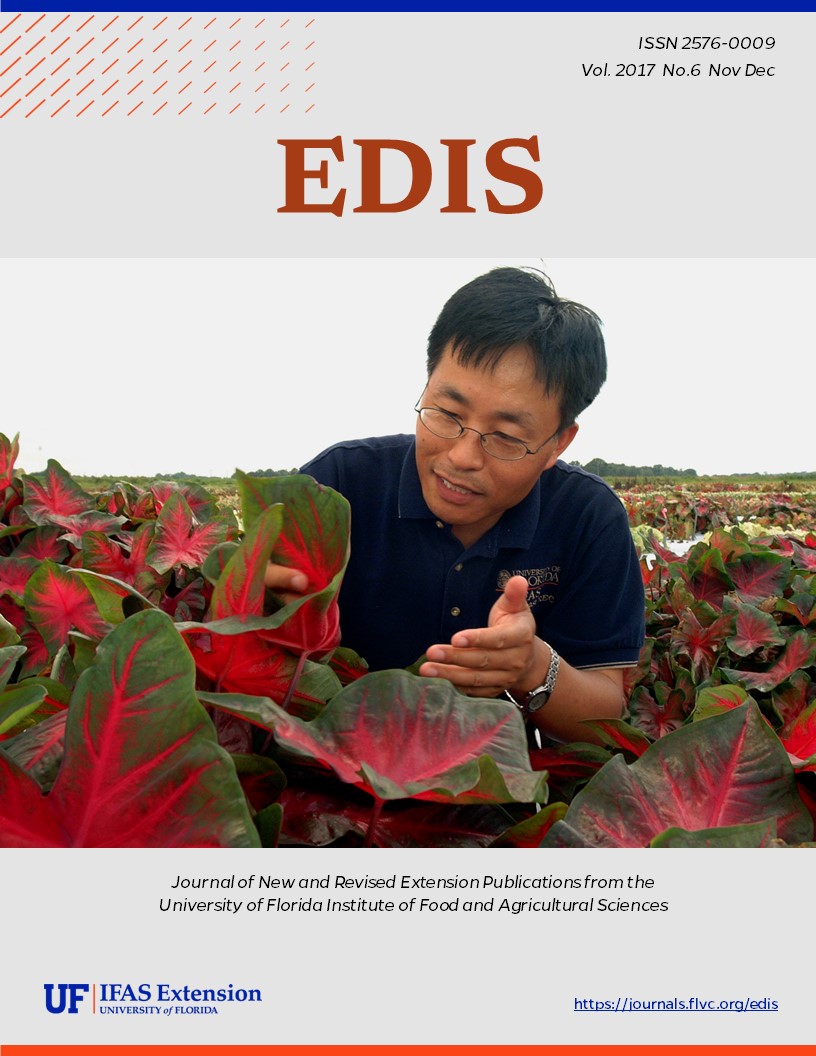Abstract
This EDIS publication is an alternate version of a page published first on the Featured Creatures website. The Featured Creatures collection provides in-depth profiles of insects, nematodes, arachnids and other organisms relevant to Florida. These profiles are intended for the use of interested laypersons with some knowledge of biology as well as academic audiences. This 6-page fact sheet that discusses the cuckoo bee was written by Jason L. Williams, Cameron Jack, and Jamie Ellis, and published by the UF Entomology and Nematology Department, December 2017.
References
Adams LD, Buchmann S, Howell AD, Tsang, J. 2010. A study of insect pollinators associated with DoD TER-S flowering plants, including identification of habitat types where they co-occur by military installation in the southeastern United States. Department of Defense Legacy Resource Management Program. Project # 09-391. https://doi.org/10.21236/ADA538617
Cane JH. 1983. "Olfactory evaluation of Andrena host nest suitability by kleptoparasitic Nomada bees (Hymenoptera: Apoidea)." Animal Behavior 31: 138-144. https://doi.org/10.1016/S0003-3472(83)80181-X
Deyrup M, Edirisinghe J, Norden B. 2002. "The diversity and floral hosts of bees at the Archbold Biological Station, Florida (Hymenoptera: Apoidea)." Insecta Mundi 16: 87-120.
Droege S, Rightmyer MG, Sheffield CS, Brady SG. 2010. "New synonymies in the bee genus Nomada from North America." Zootaxa 2661: 1-32. https://doi.org/10.11646/zootaxa.2661.1.1
Eickwort GC. 1981. "Aspects of the nesting biology of five Nearctic species of Agapostemon (Hymenoptera: Halictidae)." Journal of the Kansas Entomological Society. 54: 337-351.
Emery C. 1909. "Über den Ursprung der dulotischen, parasitischen und myrmekophilen Ameisen." Biologisches Centralblatt 29: 352-362.
Glenn GH, Ascher JS. 2010. "Survey of bees (Hymenoptera: Apoidea: Anthophila) in natural areas of Alachua County in north-central Florida." Florida Entomologist 93: 609-629. https://doi.org/10.1653/024.093.0419
Michener CD. 2000. The Bees of the World: Second Edition. Baltimore: The Johns Hopkins University Press.
Potts SG, Biesmeijer JC, Kremen C, Neumann P, Schweiger O, Kunin WE. 2010. "Global pollinator declines: Trends, impacts and drivers." Trends in Ecology and Evolution 25: 345-353. https://doi.org/10.1016/j.tree.2010.01.007
Tengö J, Bergström G. 1977. "Cleptoparasitism and odor mimetism in bees: Do Nomada males imitate odor of Andrena females?" Science 196: 1117-1119. https://doi.org/10.1126/science.196.4294.1117

